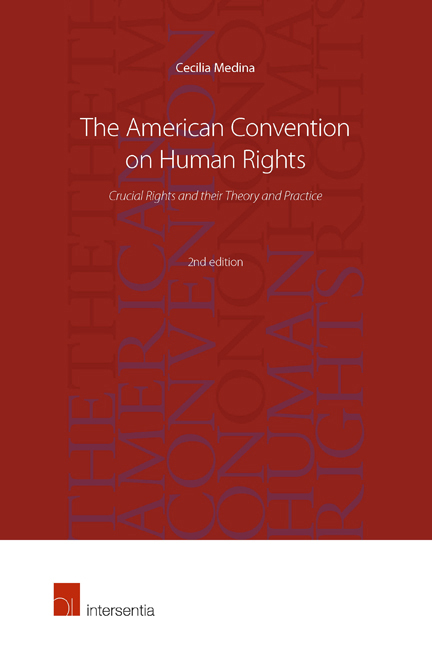Book contents
- Frontmatter
- Dedication
- Preface
- Acknowledgments
- Contents
- Table of Cases
- 1 The Court and its Circumstances
- 2 Disappearances
- 3 Right to Life
- 4 Right to Humane Treatment
- 5 Right to Personal Liberty
- 6 Right to Due Process
- 7 Principle of Legality, Freedom from Ex Post Facto Laws, and Right to Compensation for Miscarriage of Justice
- 8 Right to Judicial Protection
- Index
4 - Right to Humane Treatment
Published online by Cambridge University Press: 12 December 2017
- Frontmatter
- Dedication
- Preface
- Acknowledgments
- Contents
- Table of Cases
- 1 The Court and its Circumstances
- 2 Disappearances
- 3 Right to Life
- 4 Right to Humane Treatment
- 5 Right to Personal Liberty
- 6 Right to Due Process
- 7 Principle of Legality, Freedom from Ex Post Facto Laws, and Right to Compensation for Miscarriage of Justice
- 8 Right to Judicial Protection
- Index
Summary
Article 5. Right to Humane Treatment
1. Every person has the right to have his physical, mental, and moral integrity respected.
2. No one shall be subjected to torture or to cruel, inhuman, or degrading punishment or treatment. All persons deprived of their liberty shall be treated with respect for the inherent dignity of the human person.
3. Punishment shall not be extended to any person other than the criminal.
4. Accused persons shall, save in exceptional circumstances, be segregated from convicted persons, and shall be subject to separate treatment appropriate to their status as unconvicted persons.
5. Minors while subject to criminal proceedings shall be separated from adults and brought before specialized tribunals, as speedily as possible, so that they may be treated in accordance with their status as minors.
6. Punishments consisting of deprivation of liberty shall have as an essential aim the reform and social readaptation of the prisoners.
INTRODUCTION
One important reason for the consecration of the right to personal integrity at an international level is the reaction of the international community to the existence of torture, the atrocious treatment to which individuals have been subjected to confess their alleged crimes, part of the history of the world for centuries. The legal international reaction to torture in the last century started with the Universal Declaration of Human Rights and continued with numerous instruments intended specifically to prohibit it. These instruments regulated not only torture but also cruel, inhuman or degrading treatment. In 1975, the Declaration on the Protection of All Persons from Being Subjected to Torture and Other Cruel, Inhuman or Degrading Treatment or Punishment was adopted in the United Nations. The United Nations also subsequently adopted the Convention against Torture and Other Cruel, Inhuman, or Degrading Punishment. Inhuman treatment is one of the acts that constitute the crime of apartheid. In the framework of the OAS, the Inter-American Convention to Prevent and Punish Torture (the Inter-American Torture Convention) was adopted. In 1987, Europe approved a European Convention for the Prevention of Torture and Inhuman or Degrading Treatment or Punishment. Torture constitutes a severe violation of the Geneva Conventions of 1949, which establish the requirement of humane treatment of all along with the prohibition of torture and similar acts.
- Type
- Chapter
- Information
- The American Convention on Human RightCrucial Rights and their Theory and Practice, pp. 147 - 192Publisher: IntersentiaPrint publication year: 2016



